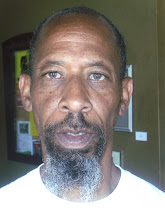The genesis of homelessness and poverty for millions of people of African descent – children, mothers, and fathers – in the United States as well as other countries in the Western Hemisphere was the brutality of “forced migration” and enslavement of the Indigenous African to the Western Hemisphere. Certainly the indigenous people of the Americas were not homeless and poor, nor where the enslaved Africans prior to the European age of exploration, conquest, and enslavement. This process included the decimation and obliteration of the indigenous people that inhabited those areas that the Europeans disembarked and settled.
African Americans began a history of homelessness and poverty both physically and mentally when we were stolen from Africa, and displaced in the Americas. We were imprisoned both mentally and physically once they put the shackles on our feet, hands, waists and necks. From there our ancestors were put on board slave ships and sent to different parts of the Americas and elsewhere. This process is what has been termed the “Middle Passage.” The late African American scholar, Dr. John Henrick Clarke, in the introduction to Tom Feelings superb picture book Middle Passage describes it thusly, “The triangular trade system was so named because the ships embarked from European ports, stopped in Africa to gather the captives, after which they set sail for the New world to deliver their human cargo, and then return to port again.” Clarke goes on to say, “Nowhere in the annuals of history have a people experienced such a long and traumatic ordeal as Africans during the Atlantic sea trade. Over the nearly four centuries of the slave trade –which continued until the end of the civil war-millions of African men, women and children were savagely torn from their home land, herded onto ships, and dispersed all over the so-called new world. Although there is no way to compute exactly how many people perished, it has been estimated that between 30-60 million Africans were subjected to this horrendous triangular trade system and that only one third –if that-of those people survived.
Williams, David A.

No comments:
Post a Comment